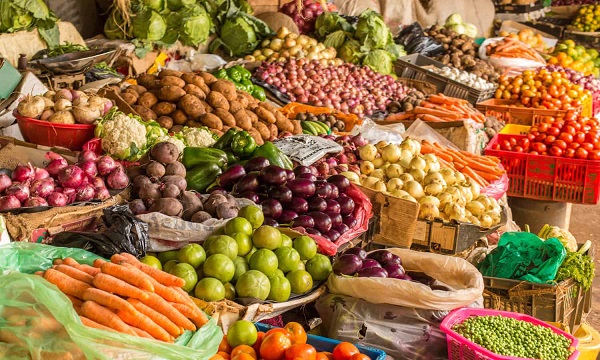
The Kaduna State Commissioner for Agriculture, Hajiya Halima Lawal, has said inter-sectoral coordination and conversation can help bridge the malnutrition gap in the African Continent.
She stated this at the launch of a Nutrition Conversations Africa webinar series with the theme ‘How nutritious food SMEs can leverage on the African Continental Free Trade Area (AfCFTA)’ convened by a communication and educative media company, Wandieville in partnership with a Swiss-based foundation, Global Alliance for Improved Nutrition (GAIN) today (July 14).
Lawal explained that malnutrition is caused when people do not have food to eat or they maintain a balance that doesn’t provide them with the right nutrients, particularly in Africa because of its socio-economic and political factors that make it more vulnerable.
The commissioner listed risks associated with malnutrition to include weight loss, lower immunity to diseases and death, in severe cases, adding such incidences could be reduced through cross-cutting conversations “such as this one we are having” between nutritionists and people who produce the food.
“We need to look at nutrition programmes in the health sector being in tandem in policies/food security programmes in the agricultural sector. That could be food stakeholder engagements, collaborations, conversations such as this and bring this to the front burner. By doing this we can promote the right foods we produce and bring to the table that which are necessary in improving nutrition issues in the continent.
“We can achieve this with the right commitment, with longer term planning. The commitment of African countries will double agricultural productivity and scale up innovations to addressing hunger and improving food security,” she added.
Earlier, the GAIN executive director, Dr. Lawrence Haddad, said the African Continent Free Trade Agreement which came into effect on January 1, 2021, presented a massive opportunity for small and medium enterprises (SMEs) in Africa especially those that are producing, supplying nutritious foods, pointing out that the agreement “promises to cover 55 countries, 1.3 billion people with a combined gross domestic product (GDP) of $3.4 trillion and provides a massive market for SMEs particularly to draw from and supply to.
“SMEs are essentially the backbone of most food systems in Africa. They are certainly the source of most foods that are purchased by consumers in Africa especially those from lower- and middle-income groups. And they need support and opportunities to grow and shape their food system so they are much more sustainable, equitable and nutritious on the food systems that many European and North American countries have,” he said.
Haddad averred that the AfCFTA could help SMEs to speak with a more collective voice, adding more and more would be thinking how African SMEs could speak and lobby and articulate their needs.
“The free trade agreement will help SMEs to begin to link more carefully, closely, deliberately with Pan African organisations like the African Union Commission, NEPAD, AfDB, institutions with a Pan African perspective which means SMEs now have a Pan African market to draw from inputs and outputs,” he added.
In her remarks, the UN Secretary General’s special envoy for the 2021 Food Systems Summit, Dr. Agnes Kalibata, who described SMEs as very innovative and young, explained business opportunities are massive with the open borders, saying that’s a win-win situation.
Represented by her deputy, Dr. Martin Frick, Kalibata said the agreement provided opportunity for the people who run SMEs to explore new markets, to go into niches where nutritious food is absolutely necessary and it is also a better opportunity for customers to have access to food and nutritious food that they actually need.
Similarly, Country Director, Kenya, GAIN, Ms. Leah Kaguara, called for a tripartite engagement between governments, civil society and international organisations and the private sector to tackle the issue of malnutrition in the continent.
According to her, government should ensure the inclusion of national nutrition plans and the establishment of regulations encouraging businesses to provide nutritious food while the CSOs provide expert local knowledge, help scale up nutrition programmes and support the set-up of global health policies.
She added the private sector should highlight the importance of SMEs which are crucial to local food systems, adding GAIN provides technical and financial assistance to build demand and access to nutritious products.


